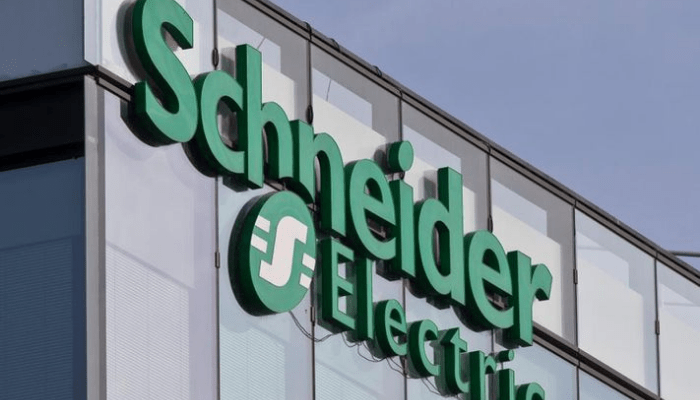Schneider Electric has introduced a suite of new energy management and power solutions aimed at boosting the efficiency and growth potential of small and medium-sized enterprises (SMEs) across Africa. The initiative reflects the company’s ongoing commitment to addressing the continent’s persistent energy access challenges while empowering local businesses to become more competitive in an increasingly technology-driven global economy.
Announcing the new solutions at a regional event, Schneider Electric executives emphasized that inadequate and unreliable electricity supply remains one of the biggest hurdles for African entrepreneurs. Many small businesses spend a significant portion of their operating costs on alternative energy sources such as diesel generators, which are not only expensive but also environmentally damaging. Schneider’s latest offerings are designed to provide affordable, sustainable, and scalable alternatives that can adapt to different industries and varying levels of energy demand.

The solutions unveiled include advanced smart energy management systems, solar-powered microgrid technologies, and modular backup power devices. Schneider highlighted that these innovations leverage digitalization to help businesses monitor and optimize their energy consumption in real time, reducing operational costs and improving productivity. By integrating smart metering and remote monitoring tools, SMEs can better manage their power usage, minimize downtime, and plan for expansion without being crippled by high energy expenses.
A key aspect of Schneider Electric’s strategy is its focus on decentralizing energy production and consumption through distributed energy resources. The company has been working closely with local partners and governments to deploy renewable energy technologies such as solar and hybrid solutions tailored to the needs of small businesses in urban and rural areas. These systems can operate independently of unreliable national grids, ensuring consistent power supply even in remote communities.
Speaking on the launch, Akinwumi Odebunmi, Schneider Electric’s Regional Director for Anglophone West Africa, noted that the new solutions are built with affordability and scalability in mind. He explained that many SMEs are unable to invest in large-scale infrastructure projects, so Schneider designed its products to be modular, allowing businesses to start small and expand their energy capacity as their operations grow. He added that the solutions also align with global sustainability goals, helping companies reduce their carbon footprint while meeting their energy needs.
The company also reiterated its commitment to capacity-building initiatives that equip African entrepreneurs with the technical knowledge needed to operate and maintain these energy systems. Through its Access to Energy program and partnerships with vocational institutions, Schneider Electric plans to provide training on energy management and renewable technologies. This move is expected to create employment opportunities while also fostering local expertise in the green energy sector.
Industry analysts have lauded the development, noting that reliable and affordable energy is crucial for the survival and growth of SMEs, which make up a significant portion of Africa’s private sector and contribute substantially to job creation and economic development. The introduction of Schneider Electric’s solutions is expected to boost competitiveness among African SMEs, attract more investment, and support the continent’s broader industrialization agenda.
The company also pointed out that its solutions are designed with Africa’s unique challenges in mind, including frequent power outages, limited access to finance, and lack of technical expertise. By offering financing partnerships and after-sales technical support, Schneider aims to ensure that businesses can adopt and sustain the use of these technologies without excessive financial or operational burdens.
Schneider Electric’s initiative comes at a time when the African Continental Free Trade Area (AfCFTA) is opening up new opportunities for intra-African trade. Analysts believe that improved energy access will play a key role in helping businesses take advantage of these opportunities. With better power infrastructure and energy management, SMEs can expand production, meet export demands, and integrate more effectively into regional and global value chains.
The new solutions are expected to be rolled out gradually across key African markets, with priority given to countries with high SME activity and significant energy access gaps. Schneider Electric has already piloted some of these technologies in select Nigerian and Kenyan businesses, recording substantial reductions in energy costs and improved productivity. Expansion to other countries, including Ghana, South Africa, and Côte d’Ivoire, is planned over the coming months.
In line with its global corporate sustainability agenda, Schneider Electric reiterated its ambition to provide energy access to 50 million people worldwide by 2030, with Africa being a critical focus area. Company executives stressed that the continent has enormous economic potential but requires innovative and sustainable solutions to address its infrastructure gaps. The latest offerings reflect this vision, positioning Schneider Electric not only as a technology provider but also as a partner in Africa’s economic transformation.
As African SMEs look to navigate a challenging economic environment marked by inflation, currency fluctuations, and global competition, access to reliable power could make the difference between stagnation and growth. With the unveiling of these innovative power solutions, Schneider Electric has signaled its readiness to play a pivotal role in shaping the future of Africa’s small business ecosystem. The success of this initiative could set a precedent for how private-sector-led energy innovations can drive inclusive economic development on the continent.
Support InfoStride News' Credible Journalism: Only credible journalism can guarantee a fair, accountable and transparent society, including democracy and government. It involves a lot of efforts and money. We need your support. Click here to Donate
